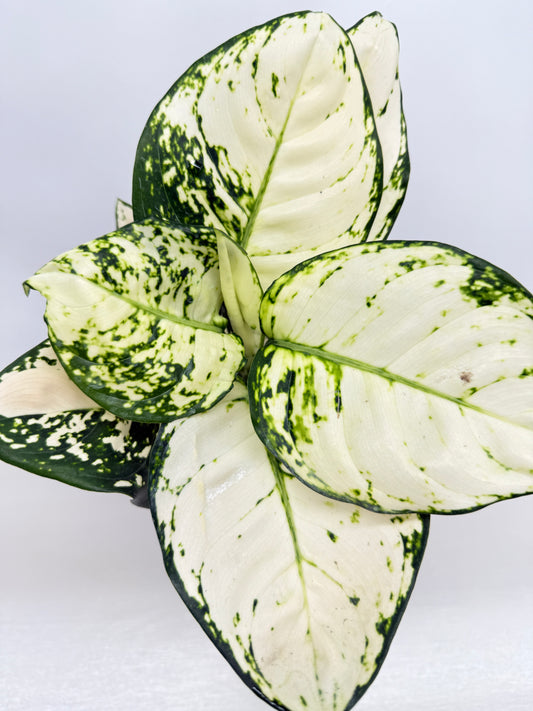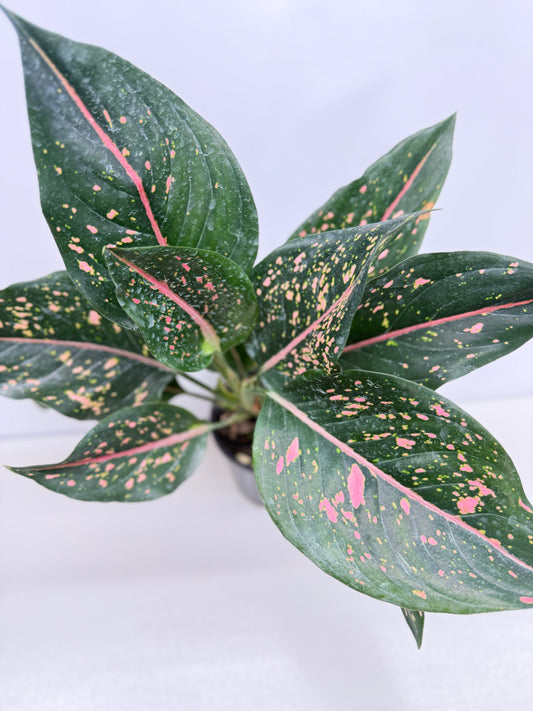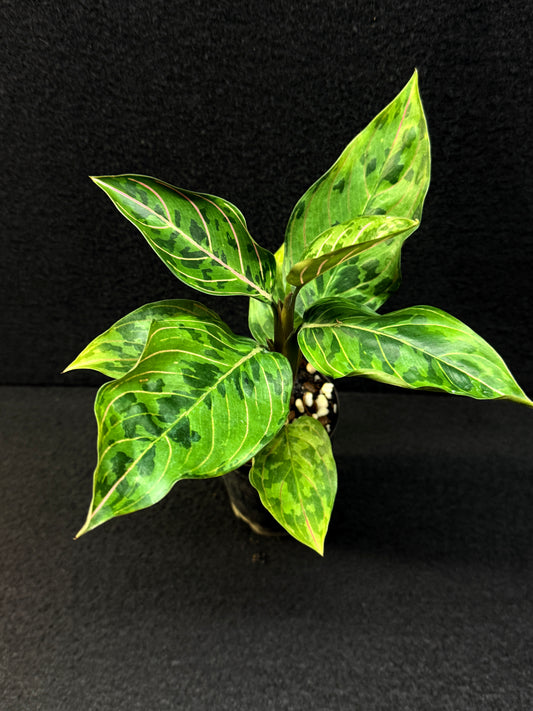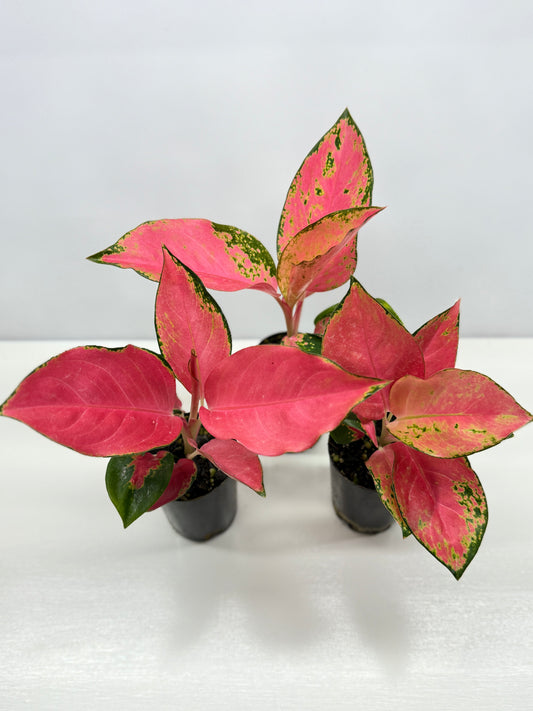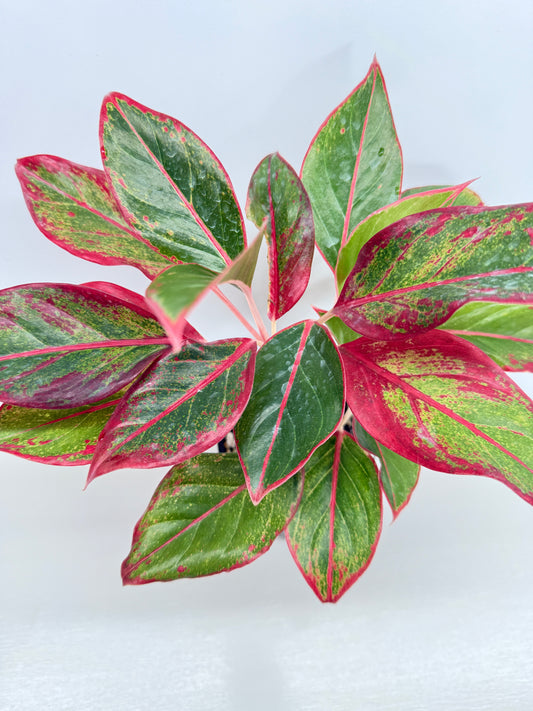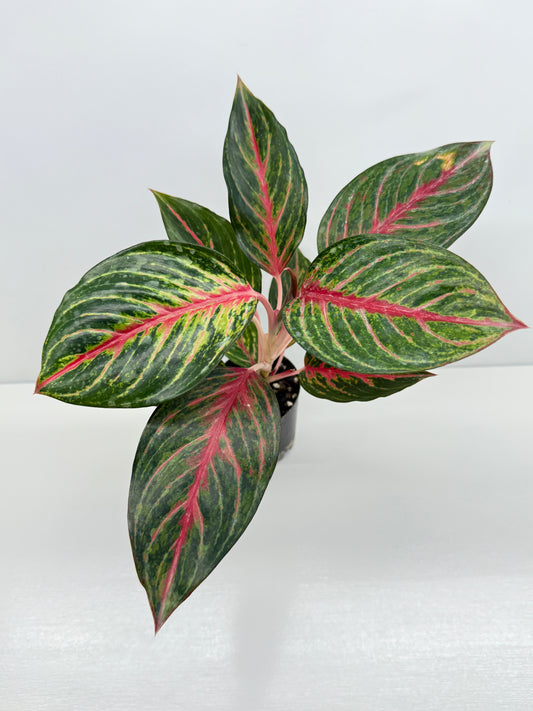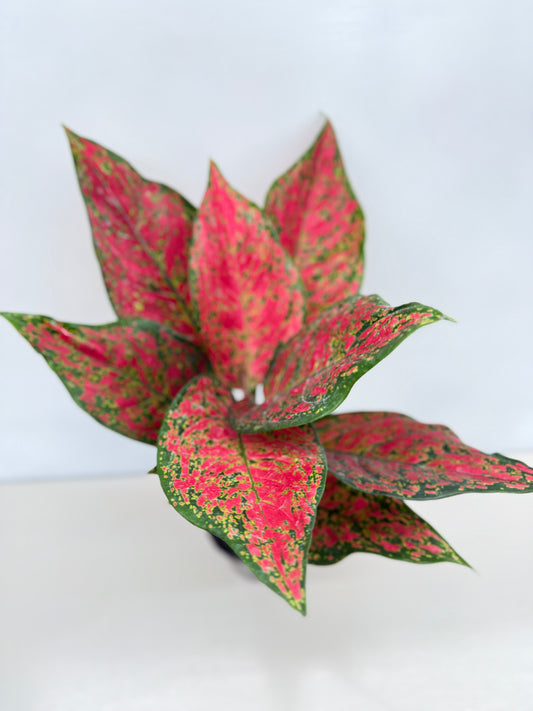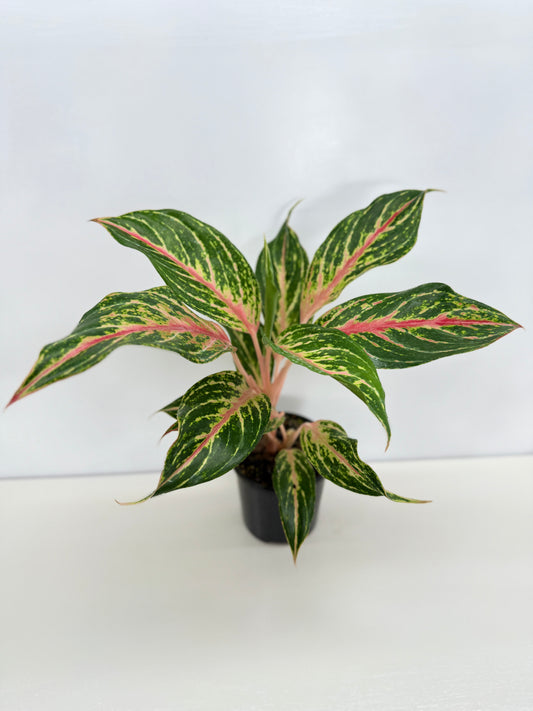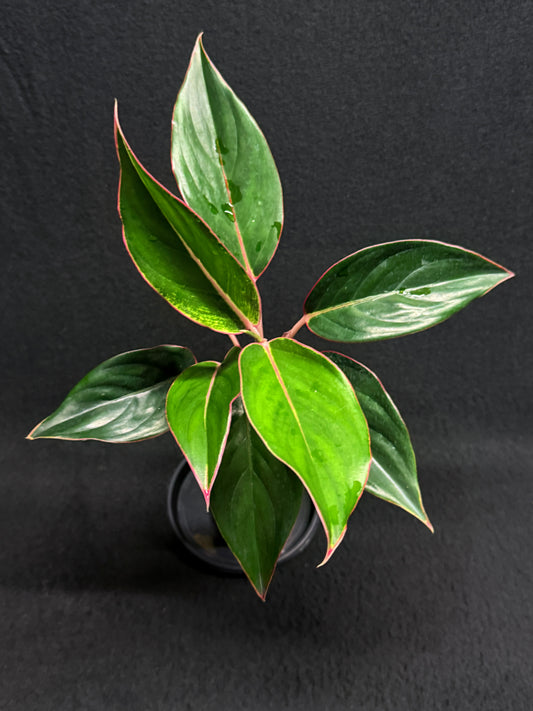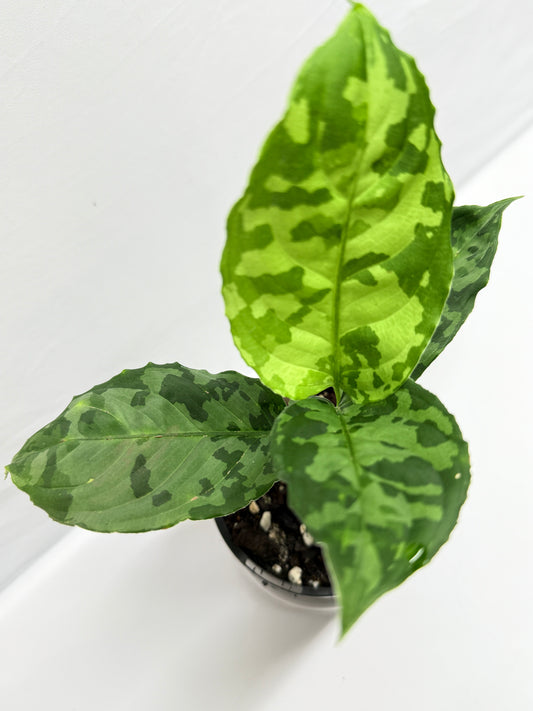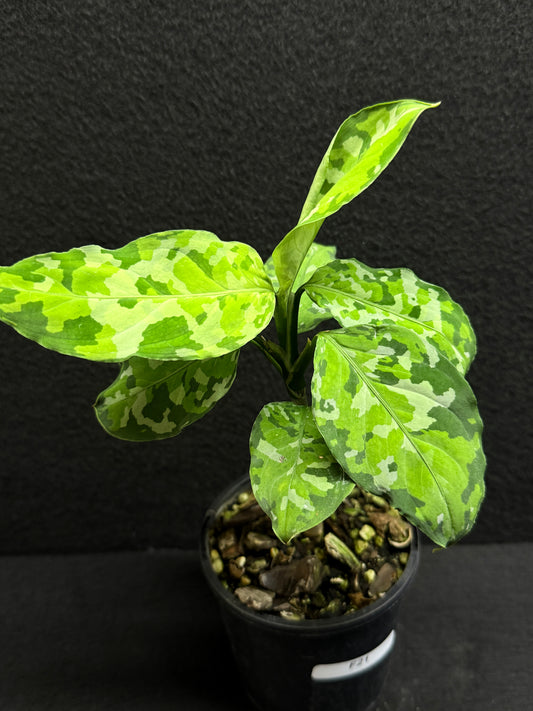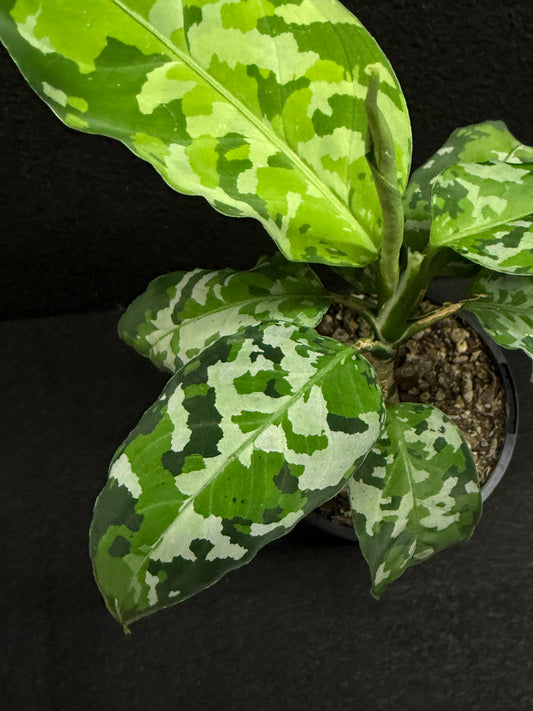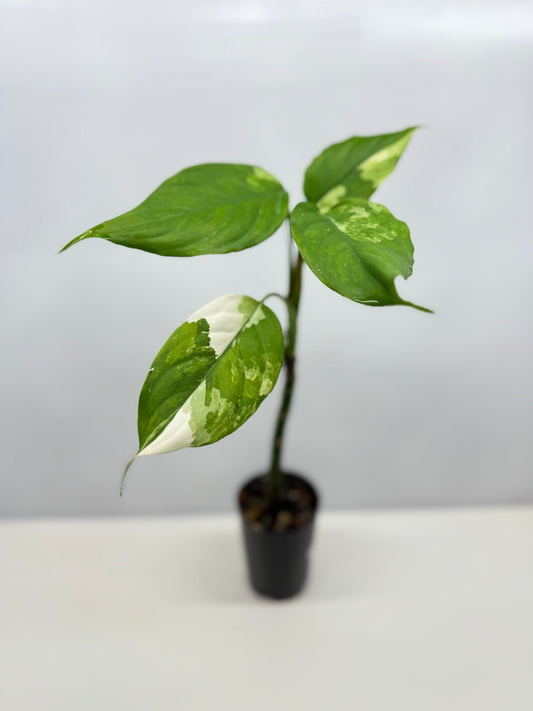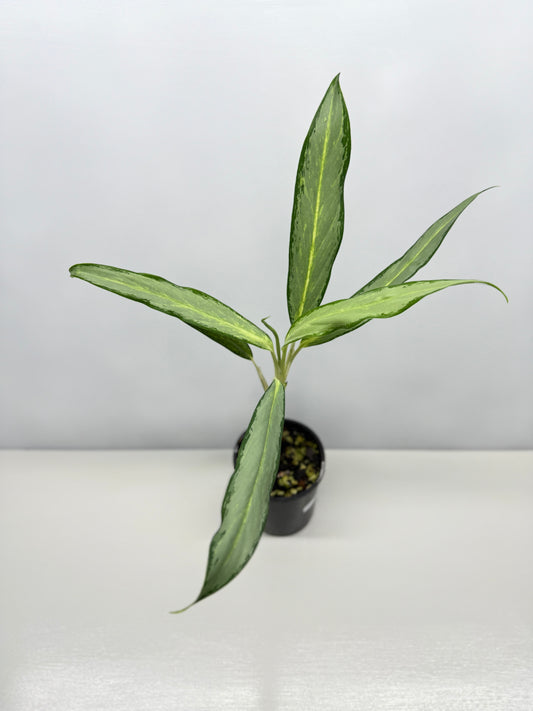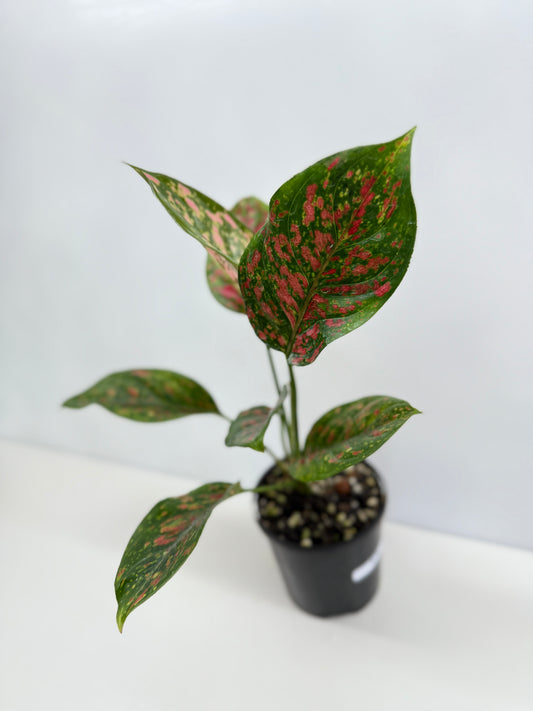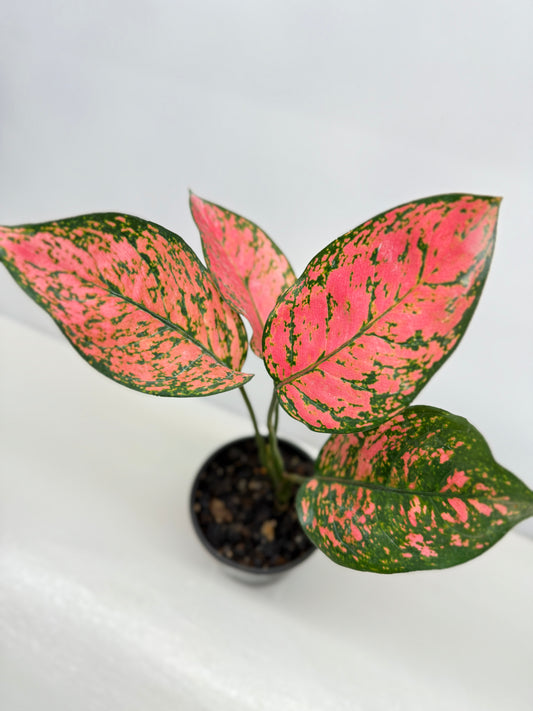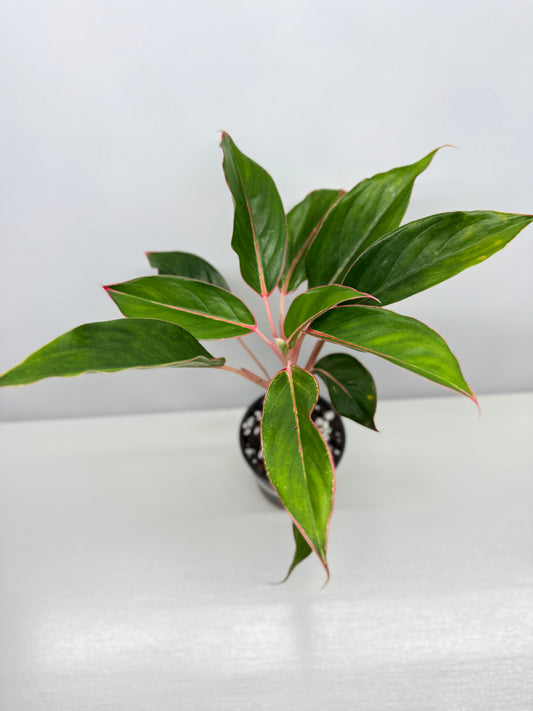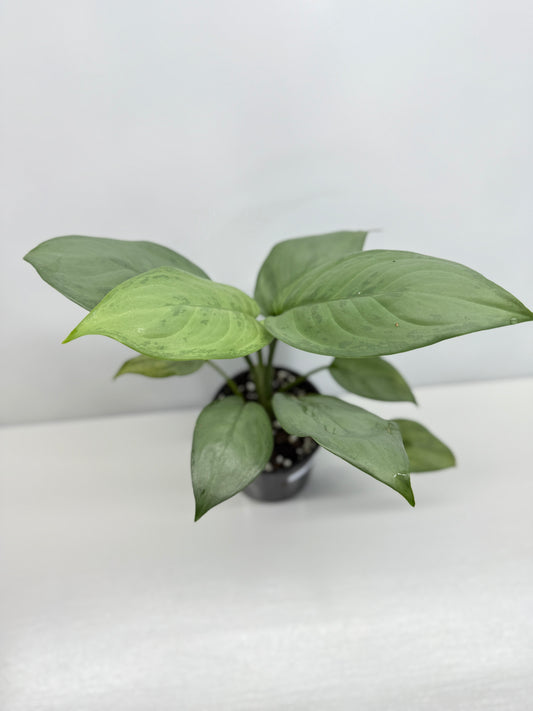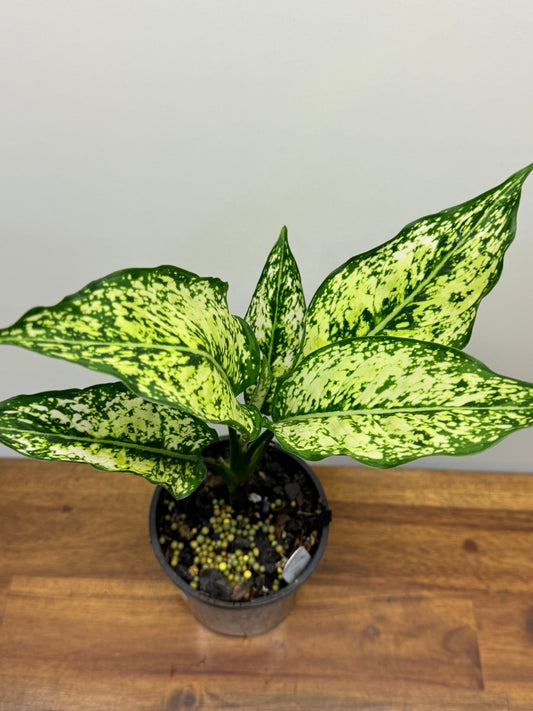Collection: Aglaonema Collection
Aglaonema are beautiful and slow growing, commonly known as Chinese Evergreen, is a popular houseplant celebrated for its vibrant foliage and low-maintenance care. Native to the tropical and subtropical regions of Asia and New Guinea, this plant thrives indoors, making it an excellent choice for both novice and experienced plant enthusiasts.
- Common Name: Chinese Evergreen
- Family: Araceae
- Origin: Tropical and subtropical Asia and New Guinea
Light Requirements: Aglaonemas prefer bright to medium indirect light but can adapt to low-light conditions. However, prolonged exposure to direct sunlight can scorch the leaves. They can be planted in the garden under canopy to add colour in the tropical garden. The leaves may brown; however, new leaves will become Sun Hardy. For indoors, if you notice the colouration fading, consider placing the plant in a brighter location with indirect light.
Watering: Water your Aglaonema when the top inch of the soil feels dry. Overwatering can lead to root rot, so ensure the pot has proper drainage. During the winter months, reduce the frequency of watering as the plant's growth slows down. Temperature: Aglaonemas thrive in temperatures between 18°C to 27°C. Avoid exposing them to temperatures below 15°C as they are sensitive to cold. Soil: Use a well-draining, peat-based potting mix. A mixture of one-third potting soil, one-third peat moss, and one-third perlite is ideal. Fertilisation: Feed your Aglaonema every 4–6 weeks during the growing season (spring and summer) with a balanced, water-soluble fertiliser such as, Powerfeed from Bunnings. Repotting: Aglaonemas prefer to be slightly root-bound and typically need repotting every 2–3 years. When repotting, choose a pot that's about 2 inches larger in diameter. Propagation: They can be propagated through stem cuttings or by dividing the basal shoots. Ensure you use clean, sharp tools and allow cuttings to root in water or moist soil. Toxicity: Aglaonema plants are moderately toxic to pets and humans. Ingestion can cause mouth and stomach irritation and possible vomiting. It's advisable to keep them out of reach of children and pets.
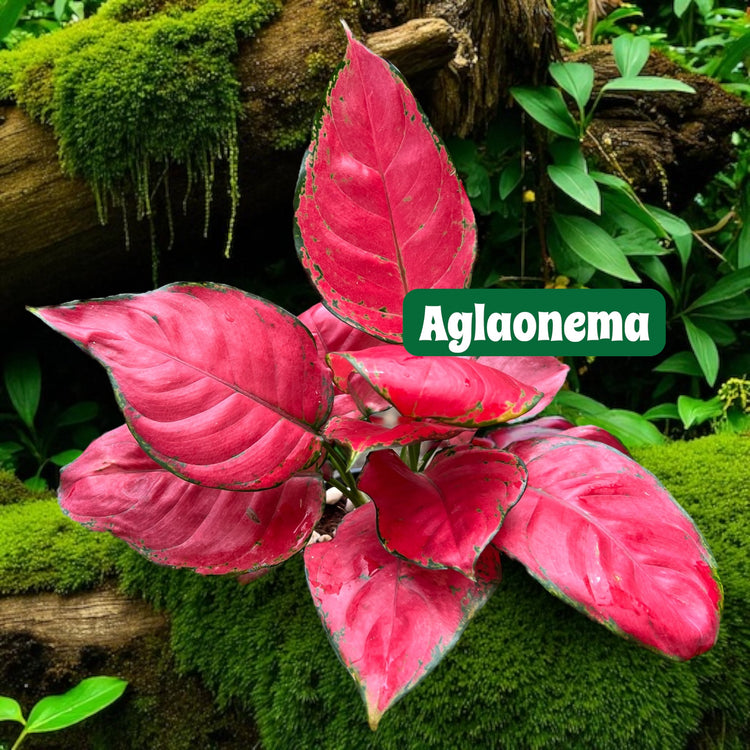
-
Aglaonema 'Super White' - Best Plant in Stock.
Vendor:fnqtropicalplantsRegular price $22.00 AUDRegular priceUnit price / per -
Aglaonema 'Pink Dalmatian' - Best Plant in Stock.
Vendor:fnqtropicalplantsRegular price $22.00 AUDRegular priceUnit price / per -
Aglaonema Pictum Tricolor × Rotundum 'Red Army' - Best Plant in Stock.
Vendor:fnqtropicalplantsRegular price $30.00 AUDRegular priceUnit price / per -
Aglaonema 'China Red' - Best Plant in Stock.
Vendor:fnqtropicalplantsRegular price $22.00 AUDRegular priceUnit price / per -
Aglaonema 'Siam Aurora' - Best Plant in Stock.
Vendor:fnqtropicalplantsRegular price $22.00 AUDRegular priceUnit price / per -
Aglaonema 'Red Emerald' - Best Plant in Stock.
Vendor:fnqtropicalplantsRegular price $22.00 AUDRegular priceUnit price / per -
Aglaonema 'Anyamanee' - Best Plant in Stock.
Vendor:fnqtropicalplantsRegular price $22.00 AUDRegular priceUnit price / per -
Aglaonema 'Night Sparkle' - Best Plant in Stock.
Vendor:fnqtropicalplantsRegular price $22.00 AUDRegular priceUnit price / per -
Aglaonema 'Sapphire' Z1
Vendor:fnqtropicalplantsRegular price $20.00 AUDRegular priceUnit price / per -
Aglaonema Pictum 'Bicolour' - Rarely Offered G15
Vendor:fnqtropicalplantsRegular price $75.00 AUDRegular priceUnit price / per -
Aglaonema Pictum 'Tricolour' - NONTC G13
Vendor:fnqtropicalplantsRegular price $85.00 AUDRegular priceUnit price / per -
Aglaonema Pictum 'Tricolour' - NONTC F21
Vendor:fnqtropicalplantsRegular price $85.00 AUDRegular priceUnit price / per -
Aglaonema Pictum 'Tricolour' - NONTC F20
Vendor:fnqtropicalplantsRegular price $85.00 AUDRegular priceUnit price / per -
Aglaonema Modestum Variegatum - Rarely Offered B14
Vendor:fnqtropicalplantsRegular price $85.00 AUDRegular priceUnit price / per -
Aglaonema White Lance Y12
Vendor:fnqtropicalplantsRegular price $15.00 AUDRegular priceUnit price / per -
Aglaonema Wishes W76
Vendor:fnqtropicalplantsRegular price $22.00 AUDRegular priceUnit price / per -
Aglaonema Pink Valentine W33
Vendor:fnqtropicalplantsRegular price $22.00 AUDRegular priceUnit price / per -
Aglaonema Sapphire V65
Vendor:fnqtropicalplantsRegular price $20.00 AUDRegular priceUnit price / per -
Aglaonema Hybrid V27
Vendor:fnqtropicalplantsRegular price $15.00 AUDRegular priceUnit price / per -
Aglaonema Snow Flake N74
Vendor:fnqtropicalplantsRegular price $15.00 AUDRegular priceUnit price / per


